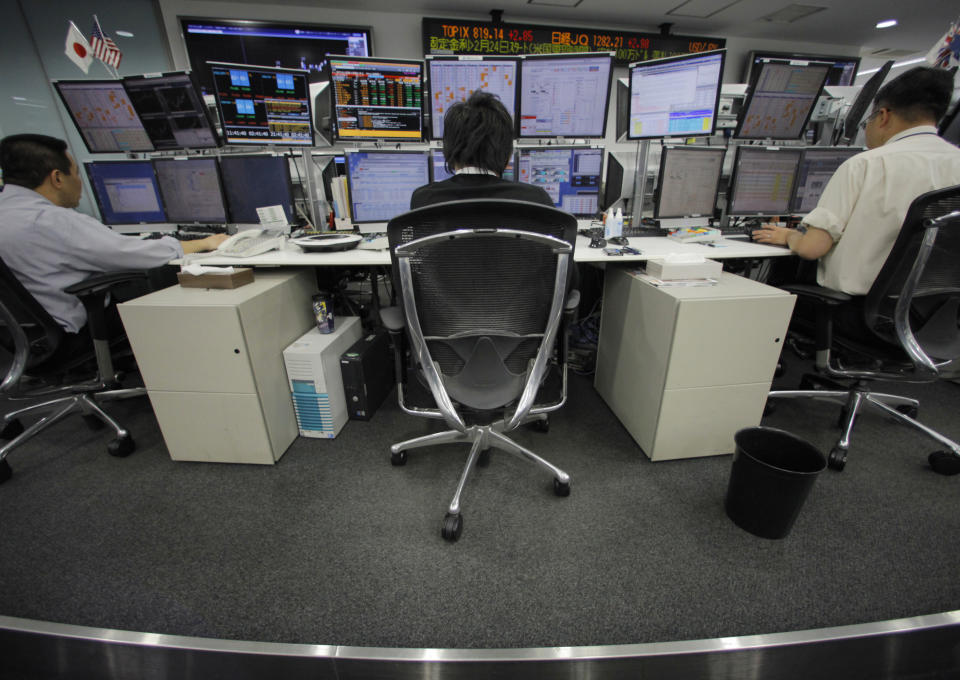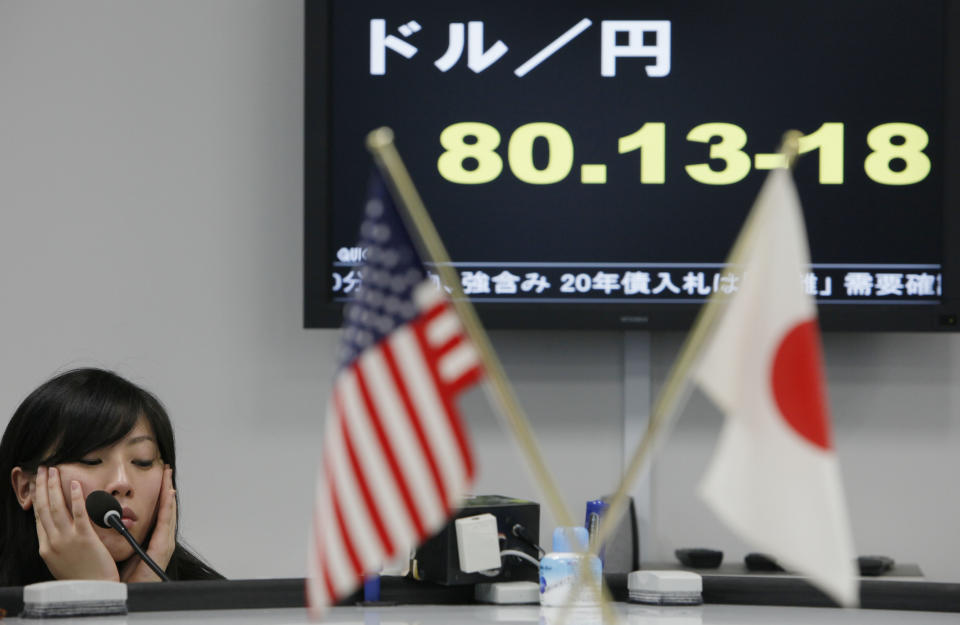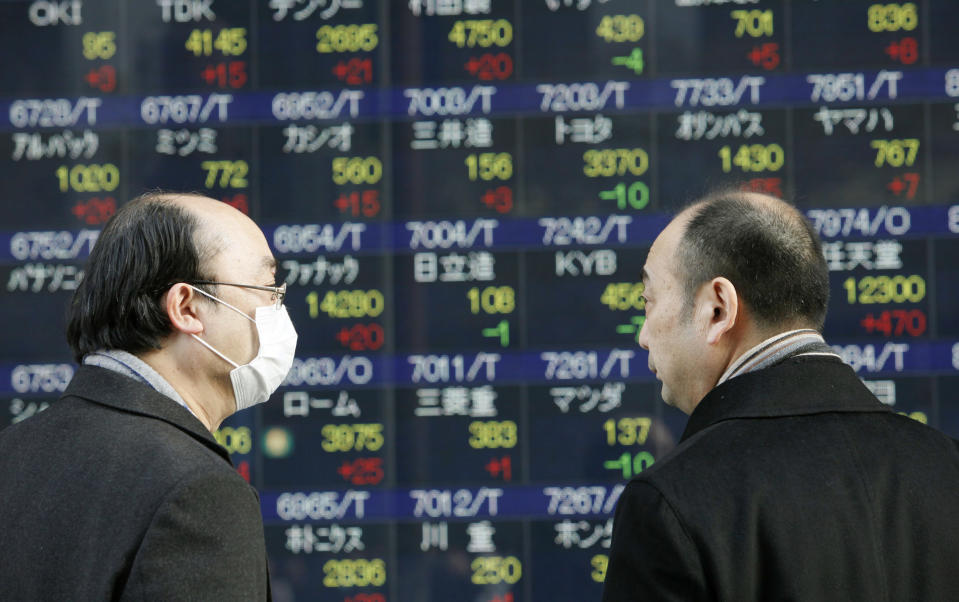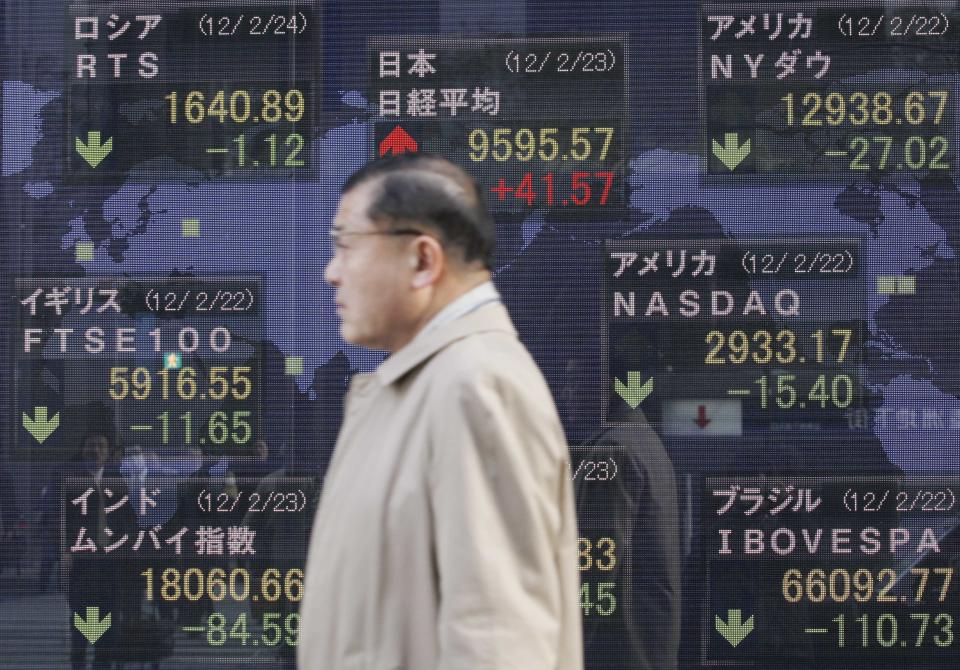Markets cautious as Greece presses on with reforms
LONDON (AP) — Markets were subdued Thursday as Greece pressed ahead with reforms demanded by its creditors in exchange for crucial bailout cash and as tensions rose in the Persian Gulf over Iran's nuclear program.
For weeks, markets have been buoyant on signs of an improving U.S. economy and indications that Europe is sorting out its debt crisis mess. Earlier this week, Greece won its second massive bailout in less than two years but it still needs to clear some hurdles before it can get its hands on the money that will help it avoid defaulting on its debts next month, when a massive bond redemption is due.
Greece's lawmakers are debating emergency legislation to approve a bond swap that would shave euro107 billion ($142 billion) off the country's privately held debt. Parliament will vote late Thursday on the proposed deal, which has already been approved at committee level. The governing coalition controls a strong enough majority to easily pass the law.
The writedown to be imposed on banks, pension funds and other private holders of Greek government bonds was agreed this week by finance ministers from the 17-member eurozone. The meeting in Brussels also approved a new euro130 billion ($172 billion) bailout to prevent Greece from going bankrupt and keep the country within the euro area.
Beyond Greece, investors were focusing on the risk that Iran might close the crucial oil gateway of the Straits of Hormuz and on another batch of U.S. economic data.
In Europe, the FTSE 100 index of leading British shares was up 0.2 percent at 5,928 but Germany's DAX fell 0.4 percent to 6,817. The CAC-40 in France was 0.1 percent lower at 3,443.
The euro, which has been shored up by hopes over a dampening of Europe's debt crisis, was up 0.4 percent at $1.3297.
Wall Street was poised for a steady opening, with both Dow futures and the broader S&P 500 futures up 0.1 percent.
Iran, the world's third-biggest oil exporter is in a standoff with the West over its nuclear program. After blocking United Nations inspectors late Tuesday, Iran repeated warnings that it would act against countries that pose a threat.
Iran has cut off oil shipments to Britain and France, although those countries used very little Iranian oil. But it may also halt supplies to other European nations that rely more heavily on its crude. European countries buy about 18 percent of Iran's oil exports.
The United Nations suspects Iran of building a nuclear weapon. Iran denies that, but the U.S. and the European Union insist that Iran prove it. They have frozen assets of Iran's central bank, and the EU will implement an oil embargo in August to force Iran to open its nuclear program for inspection.
The uncertainty has sent oil prices sharply higher over recent days towards nine-months highs. The benchmark New York rate was trading flat at $106.28, its highest since May.
"Oil prices are still climbing, which is a source of concern," said Kit Juckes, an analyst at Societe Generale. "None of this comes close to trumping easy money and global economic thaw as the drivers of the market in the coming months, but small corrective pressures add up to reason enough to be cautious."
Europe, in particular, could do without rising oil prices, which have the potential to choke off growth.
According to forecasts from the EU's executive branch, the 17-nation eurozone economy will suffer a modest recession this year despite recent signs of stabilization, particularly in financial markets. In its latest projections, the European Commission forecast a 0.3 percent contraction in the eurozone economy, with Greece leading the way downwards with a massive 4.4 percent decline.
Earlier in Asia, Hong Kong's Hang Seng dropped 0.8 percent to 21,380.99 and South Korea's Kospi lost 1 percent to 2,007.08.
But Japan's 225 Nikkei added 0.4 percent to close at 9,595.57, its highest finish since Aug. 4, as the dollar traded near a seven-month high against the yen. That's a positive sign for Japan's powerhouse exporters, which have struggled amid a prolonged period of strength in the yen.
In mainland China, the benchmark Shanghai Composite Index added 0.3 percent to 2,409.66, its highest close in three months. The Shenzhen Composite Index advanced 0.5 percent to 958.80.
____
Pamela Sampson in Bangkok contributed to this report.





